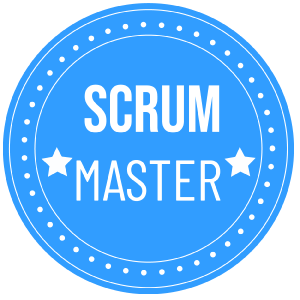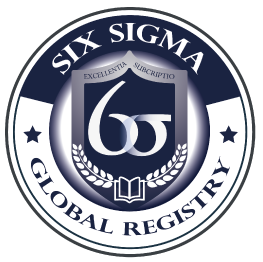Acosixsigma offers a different concept in training and business development. Our educational and business services not only include training through established programs, but also offer flexible In-Company training, consulting and coaching programs.
All of our consultants have extensive real-world experience with Six Sigma implementations, and we offer a full range of consulting services. We have held management and corporate leadership positions in companies facing real problems and have made substantial improvements to their processes. We have years of experience in training and applying improvement methodologies in a wide variety of industries, from manufacturing to service, health and education. Our programs and materials are world class with exclusivity in Colombia and Latin America. Our application support is focused on results.
Why should I choose Acosixsigma trainings?
- Program accredited by the International Association for Six Sigma Certifications and Aligned with the Book of Knowledge of the American Society for Quality.
- We comply with the complete program of topics and hours required by international entities of a minimum of 80 hours for Green Belt and 120 hours for Black Belt.
- All of our consultants are certified Master Black Belts and have extensive real-world knowledge of Six Sigma, Lean, or both. In addition, we offer a full range of consulting services.
- Monitoring and accompaniment in certification projects up to 9 months. We continuously work with the participants to link theory and reality in the company with the cases every day.
- Our Organization and Consultants have been conducting Six Sigma training and consulting applications for over 12 years.
- We have the most competitive costs in the market compared to the number of hours, topics and accompaniment in all programs.
Six Sigma Certifications
Seminars and Workshops
Design for Six Sigma (DFSS)
Innovation for Six Sigma (IFSS)
“Team Excel” – Business Leadership
FMEA – Failure Mode and Effect Analysis
Balanced Score Card (BSC)
Six Sigma Seminar for the Health Sector
Innovation for Six Sigma (IFSS)
“Team Excel” – Business Leadership
FMEA – Failure Mode and Effect Analysis
Balanced Score Card (BSC)
Six Sigma Seminar for Education
Management Seminar – Six Sigma Champion
Six Sigma Seminar for Human Resources
Data Analysis Tools
ITIL/ITSM framework
Lean Office/Services/Marketing
Leave us your data to advise you!
FAQ
According to the Body of Knowledge (BOK) of the American Society for Quality (ASQ) and the international certification programs recognized by Motorola University and the International Society for Six Sigma Certifications, the minimum hour number of the Six Sigma program is:
- Green Belt – 80 hours
- Black Belt – 120 hours
There are a number of Six Sigma programs that are widely marketed and apply only a fraction of the BOK for each level. Acosixsigma is recognized for the large amount of curricular content that applies to all types of industry. For example, the estimated time for a Black Belt certification course is 120 hours, not including additional time allocated to a Six Sigma project. Other providers offer Black Belt training courses totaling 90 hours and Green Belt courses advertised at 56 hours. Therefore the variability in class hours obviously serves as a warning for interested companies to carefully check the subjects when taking a particular course against the established criteria for certification.
A Lean/Kaizen/Blitz Event is an intense effort where the team applies specific Lean approaches to reduce waste, defects, and cycle time and to implement improvements in a particular process or department.
Lean Six Sigma is an integrated set of methodologies that encompasses both Lean and Six Sigma concepts. It combines two powerful toolsets to address all aspects of quality, cost, and delivery. Both sets of methodologies have a customer and quality focus and are based on continuous improvement, which allows them to be very complementary.
Lean focuses on offering competitively priced products and services by eliminating waste and its drivers, while Six Sigma focuses on minimizing and reducing process variation that causes nonconformities.
Lean Six Sigma combines the strength and rigor of Six Sigma and data-driven analysis with the simple tools of Lean to eliminate waste and its drivers. The combination of the two methods provides a more robust set of tools for organizations to apply to solve problems, using the tools and techniques that best suit the specific problem at hand. Rather than the traditional independent use of tools, Lean Six Sigma combines Lean approaches into Six Sigma through the DMAIC (Define, Measure, Analyze, Improve and Control) method, as well as allowing Lean approaches to be used on their own. in the DMAIC model.
Process improvement is necessary for the performance of an organization that does not meet customer requirements. Lean Six Sigma offers a comprehensive set of tools, techniques, and approaches to enable an organization to gather customer requirements, analyze existing performance against those requirements, implement solutions to address performance gaps, and maintain best-in-class status. The tools and techniques used are the most appropriate for the specific problem at hand.


